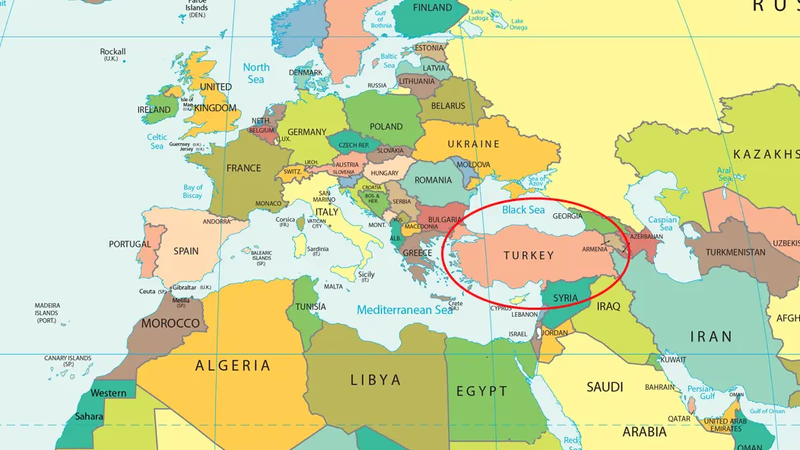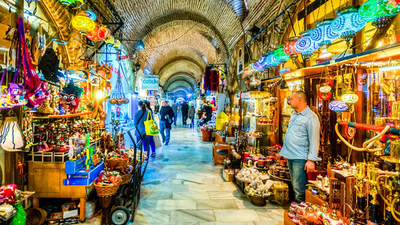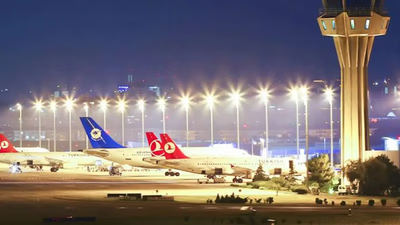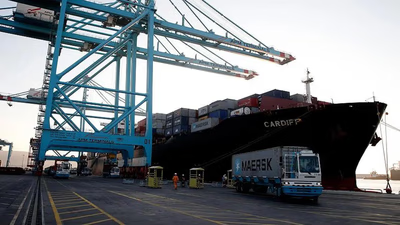
Turkey"s strategic location boosts Middle East trade opportunities. "
Turkey (Istanbul Turkish: Türkiye) is the official name of the Republic of Turkey (Istanbul Turkish: Türkiye Cumhuriyeti), an independent and transcontinental country in Eurasia that is a large part of the country. That is, Anatolia or Asia Minor is located in northwestern Asia and the Middle East, and a small part called Thrace is located in the Balkans (a region in southeastern Europe). Turkey to the east with Iran, Nakhchivan, Armenia, and Georgia; in the southeast with Iraq and Syria; it is bordered by Bulgaria and Greece in the northwest (European part). Turkey is bordered by the Black Sea to the north, the Marmara Sea and the Aegean to the west, and the Mediterranean Sea to the southwest. Turkey also has two strategic straits, the Bosphorus and the Dardanelles.
Turkey is 783,356 square kilometers (37th). Turkey is a mountainous and relatively rainy country. The shape of this country is like a rectangle that extends from east and west. Being located in one of the most sensitive regions of the world, Turkey has a strategic and very good geographical location and is considered a crossroads of Northwest Asia and Europe, and many countries, especially Iran, use Turkish territory for the transit of goods and energy. Turkey has a good climate and plains and has interesting and spectacular places, which is why a large number of tourists travel to this country every year.
The Turkish economy is a combination of indigenous and modern industries, which is expanding day by day. Turkey's large agricultural production ranked seventh in the world in 2005 and created employment for 11.2% of the Turkish population in 2006. The private sector of the Turkish economy is also strong and growing rapidly and plays an important role in banking, transport, and communications. In recent years, the Turkish economy has grown well, with the growth of 8.9% and 7.4% in 2004 and 2005, respectively.
Turkey ranks 13th in the world (purchasing power parity) and has the 19th largest GDP in the world. Turkey is also a founding member of the Organization for Economic Co-operation and Development (OECD) and is group 20. Turkey has also expanded and expanded into the automotive industry, producing more than 1.3 million vehicles in 2015 and ranking as the 14th largest automaker in the world.
Turkey built its first national car in 2019, designed by Pininfarina, and Recep Tayyip Erdogan called it a sign of the country's development. The country is advanced in shipbuilding and its products are exported to European countries. The country has been able to capture large parts of the European market. Turkish brands such as Beko and Vestel are among the largest manufacturers of consumer electronics and home appliances in Europe and invest heavily in research and development in new technologies related to their products. Other important sectors of the Turkish economy include banking, construction, home appliances, electronics, clothing and textiles, petrochemicals, food, tourism, and the machinery industry. Turkish food is continuously available in many European countries.
Turkish industry has modernized and expanded and has been able to target many countries in the Middle East in addition to European countries, so that along with European countries such as Germany, countries in the Middle East, including Iran and Iraq, have very high imports from Turkey. Turkish industry has modernized and expanded and has been able to target many countries in the Middle East in addition to European countries, so that along with European countries such as Germany, countries in the Middle East, including Iran and Iraq, have very high imports from Turkey.
-

Turkey"s strategic geographical location at the crossroads of Europe and Asia enhances its role in international trade, particularly in the Middle East. Bordered by several countries and seas, Turkey serves as a vital transit point for goods and energy. The Turkish economy is diverse, with significant contributions from agriculture, manufacturing, and services. It ranks 13th globally in purchasing power parity and has a rapidly growing private sector that plays a crucial role in banking, transport, and communications. The automotive industry is notable, with Turkey being the 14th largest automaker worldwide. Additionally, Turkish brands are prominent in consumer electronics across Europe. The country has successfully modernized its industries to cater to both European and Middle Eastern markets, leading to substantial imports from nations like Iran and Iraq. This dynamic economic landscape positions Turkey as a key player in regional trade networks. "
-

Travelers leaving Turkey must ensure their passport is valid for at least six months beyond their departure date to avoid complications. It"s crucial to check the validity of any visa or residence permit, as overstaying can lead to fines or restrictions. Understanding customs regulations is essential, particularly regarding the export of goods, artifacts, and souvenirs. The value of gifts and souvenirs should not exceed five thousand liras; otherwise, they are subject to special export rules. For those leaving permanently, notifying authorities about the cancellation of residence permits is necessary. Settling all financial obligations before departure is also important. Travelers should carry official invoices for purchased goods to facilitate customs checks and avoid issues with customs officials. Additionally, awareness of duty-free allowances in the destination country is vital, as exceeding these limits may require declarations and payment of duties.
Prohibited items such as illegal drugs and weapons must not be carried when leaving Turkey. Lastly, understanding the specific regulations related to the mode of transportation used for departure—whether by air, sea, or land—is essential for a smooth exit. "
-

Turkey"s transport infrastructure is extensive and continually improving, featuring a well-maintained road network that connects major cities. The railway system primarily focuses on freight but also offers passenger services, with significant investments in high-speed rail lines. Turkey boasts 98 airports, including 22 international ones, with Istanbul"s new airport aiming to be the world"s largest. Turkish Airlines has expanded its global reach significantly. Customs regulations for imports and exports are in place, particularly concerning goods valued over €1,500 and currency export limits. The country also has a robust public transportation system in major cities and a significant maritime transport network supported by numerous ports. Notable infrastructure projects include iconic bridges and tunnels that enhance connectivity across the region. "
-

Turkey is a significant player in global exports, particularly in the automotive, textile, and agricultural sectors. The country ranks among the largest automotive producers in Europe, with major brands like Ford and Renault establishing manufacturing facilities. The textile industry is another cornerstone of Turkey"s export economy, known for its quality and diversity, making it a key supplier to Europe. Agricultural exports are robust, including fresh produce and processed goods, contributing to Turkey"s status as a leading exporter in the EU. In 2018, Turkey"s exports reached $156 billion, marking a 10. 22% increase from the previous year. The jewelry sector also thrives, recognized for its craftsmanship and unique designs. Home appliances have seen significant growth as well, with brands like Beko gaining traction in European markets.
Additionally, Turkey"s machinery and steel industries contribute to its diverse export portfolio. Overall, Turkey"s strategic investments across various sectors have enabled it to diversify its export offerings effectively. "
-

Turkey"s export landscape is dominated by key markets such as Germany, the UK, and Iraq. Germany stands out as the largest importer, with Turkish exports reaching over $18 billion annually, driven by a significant Turkish population contributing to economic ties. The UK follows closely, with exports including automobiles and textiles projected to hit $11 billion. The United Arab Emirates has seen a remarkable increase in imports from Turkey, surpassing $11 billion this year. Iraq remains a crucial neighbor for Turkish exports, particularly in construction materials and textiles, with figures exceeding $10 billion. The United States also plays a vital role in Turkey"s export economy, importing machinery and textiles worth around $10 billion. Other notable markets include Italy and France, each importing over $10 billion in various products like automotive parts and chemicals. This diverse export portfolio highlights Turkey"s strategic position in global trade networks across Europe and the Middle East. "





